ARTICLE
Will Attorneys Who Use ChatGPT Replace Attorneys Who Don’t? Looking Into Plans for Rowan Patents
It seems that generative AI, ChatGPT and other large language models (LLMs) are everywhere and on everyone’s minds these days. Is a LLM ready to draft patents? Lots of people are wondering – will they replace patent attorneys? How can a company take advantage of their power without unintentionally disclosing their confidential information as happened to Samsung?
Advancements in these technologies are moving very fast, and governments are exploring how to regulate them. Italy has banned ChatGPT due to data protection concerns, and the US and EU are both exploring regulations
We are convinced generative AI and LLMs can provide significant improvements to work product transformation and generation for patent preparation and prosecution. Generative AI is a logical evolution to natural language processing-driven work product generation currently available within Rowan Patents and that has been attempted by many in the patent prosecution market. Today, Rowan Patents includes several work product generation features (using NLP algorithms and templates all local to the desktop application) as a portion of the capabilities currently available in its software.
Rowan has been monitoring, investigating, and testing the advances in ChatGPT, and other LLMs, for several months. Most importantly, we’ve been discussing their potential use with our clients. Our initial work has centered around how to most intelligently and securely integrate the OpenAI API within Rowan Patents to accelerate the practitioner’s patent drafting work. This includes focusing on ways it can best complement the unique advantages of Rowan’s integrated drafting environment including exploring the use of localized LLMs.
To us, and to our clients, confidentiality is a major consideration. It’s beyond obvious that information contained in a patent application is highly sensitive, and accidental disclosure would be disastrous. We hear concerns that the ChatGPT tool will use confidential data to train their model. One advantage of integrating the OpenAI API is the ability to balance the potential benefits of the generative AI model without a user’s data being used by OpenAI to train the ChatGPT model. Their public statement released on March 1, 2023, likely in response to such concerns, reads:
“By default, OpenAI will not use data submitted by customers via our API to train OpenAI models or improve OpenAI’s service offering. Data submitted by the user for fine-tuning will only be used to fine-tune the customer’s model.” (source)
Furthermore, since Rowan Patents is a desktop application rather than a word plugin like other patent drafting software, we have more options for leveraging LLMs that run directly on users’ machines rather than in the cloud, making sure that none of their data leaves their local environment. We are actively exploring these options, as well as cloud-based options like ChatGPT.
While we believe that work product generation and transformation is a way to accelerate elements of the patent prosecution process, the patent practitioner is still ethically and/or legally required to oversee creation of the patent application in the U.S. and many other jurisdictions.
We welcome ways that practitioners can generate and insert technical and legal descriptions into the Rowan integrated drafting environment as a starting point, knowing that they will want to use Rowan to help mold that text and those figures into the ultimate output they want.
What are Rowan’s plans for incorporating ChatGPT/LLM technologies?
In general, our plan is to make everything we do with this new technology:
- Optional
- Transparent
- Based on user input
Optional — The Rowan Patents software is configurable. The work we are doing with ChatGPT will only be turned on for our clients upon their request. By default, it will remain turned off for those organizations who do not want their users to access remote LLM services.
Transparent — Even when Rowan Patents is configured to access remote LLM services, using those services will be at the explicit instruction of the user. In other words, we don’t intend to build functionality that sends information to such a service without the user’s knowledge and approval.
Based on user input — As with everything we do at Rowan, we’ll be looking to user input to help guide our path. We have found the best way to get user input is not to talk about it in the abstract, but to build something that people can actually try. So, we are well down the road of initial implementation primarily for the purposes of gathering such input.
Specifically, our initial offering will release Rowan AI Chat. AI Chat is powered by OpenAI’s GPT-3.5 model, which also runs OpenAI’s ChatGPT. It will be available directly from Rowan Patents’ integrated drafting environment. We are targeting a beta release to our clients in the early summer.
Our view to answer the question on many people’s minds about whether AI and LLMs will replace patent attorneys is that such technology will not replace patent attorneys, but rather that patent attorneys that use this and other technology like Rowan Patents will replace those that don’t.
We welcome your input. If you aren’t familiar with Rowan Patents, please contact us to set up a discussion.


